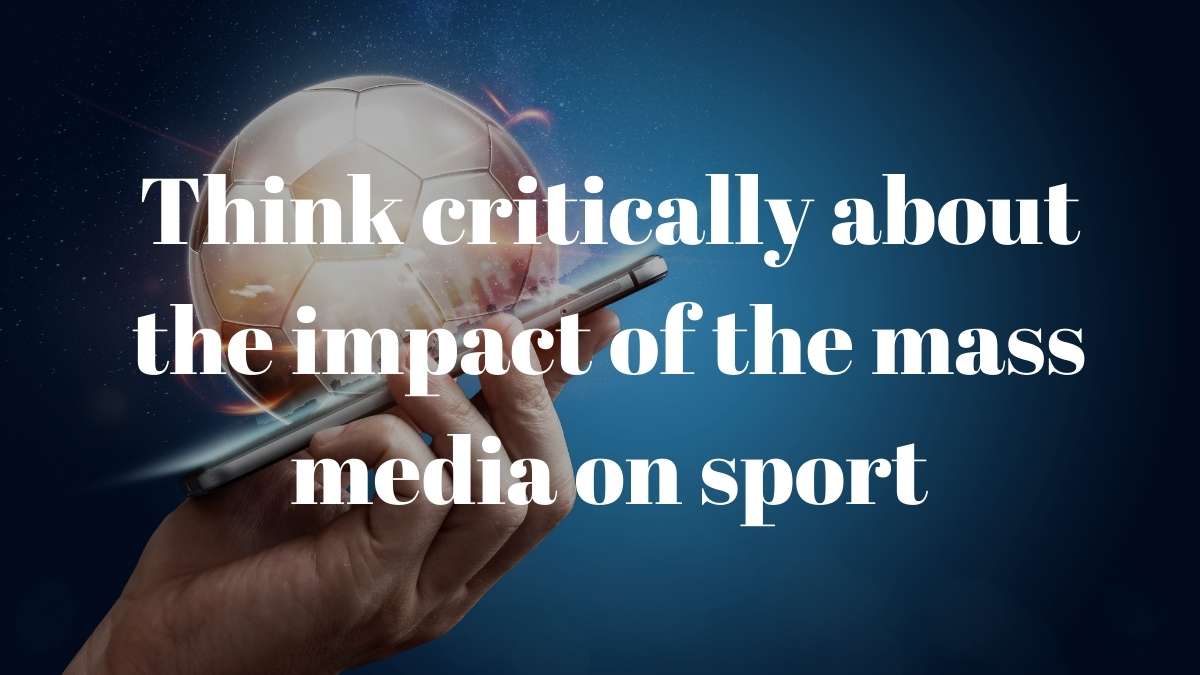Think critically about the impact of the mass media on sport
The Syllabus asks you to consider 3 questions when thinking critically about the impact of the mass media on sport.
Who benefits and in what ways?
The media company benefits from generating a news headline or breaking exclusive interviews or being the first to release team lists for a major competition ie State of Origin. The sport and sponsors associated will benefit with each good news story. The athlete will also benefit if the news is positive ie winning first Olympic Gold medal, the premiership, retaining the Ashes etc
How does the media influence our understanding of sporting events?
The media can have a negative or positive influence on our understanding of sporting events. This all depends on the message they deliver in their presentation of various events and athletes behaviour or achievements. Male athletes tend to be subject to bad behaviours and females tend to be targeted for sexuality purposes. Ben Cousins, Andrew Johns and Tiger Woods have all been scrutinised in the media and therefore impacting our understanding of the sport or the athlete as a person. The choice of who is represented in the media and how creates messages that are a direct reflection of sports and athletes that are valued in society.
How have sports been changed to suit the needs of the media?
Sport has changed to suit the needs of the media by utilising prime time viewing with broadcasting partnerships. The idea is to limit the amount of breaks for advertisement and maximise the amount of viewing time for spectators. Advertisements during these breaks include companies that want to target a certain audience or market. For example KFC and their relationship with Test Cricket encourages people to buy the food product and promote the company through the “bucket head” trend that is also partnered with social media platforms.
Rule modifications have been made to ensure the game is more free flowing and allows for spectators to watch the match or competition in full without continual stoppage time. Audiences do not want their favourite sport to be interrupted with frequent intermissions.

